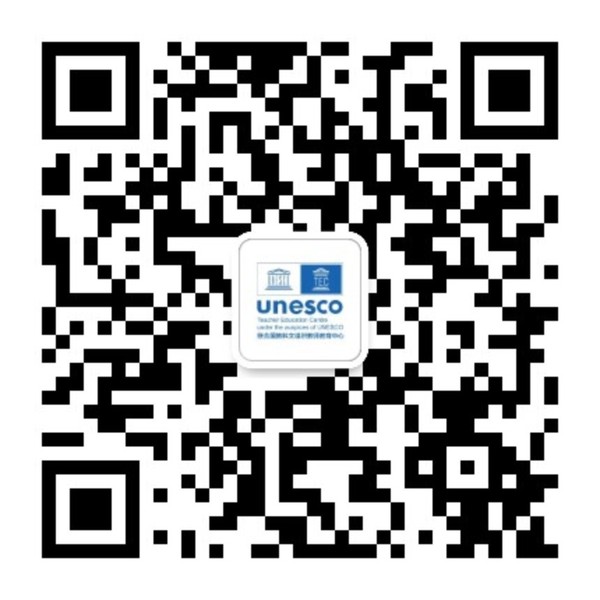From April 23 to 24, 2025, a 59-member delegation of faculty and students from the Faculty of Education, Chiang Mai University, Thailand visited the UNESCO Teacher Education Centre (TEC) and jointly carried out a series of learning and exchange activities with the Centre.
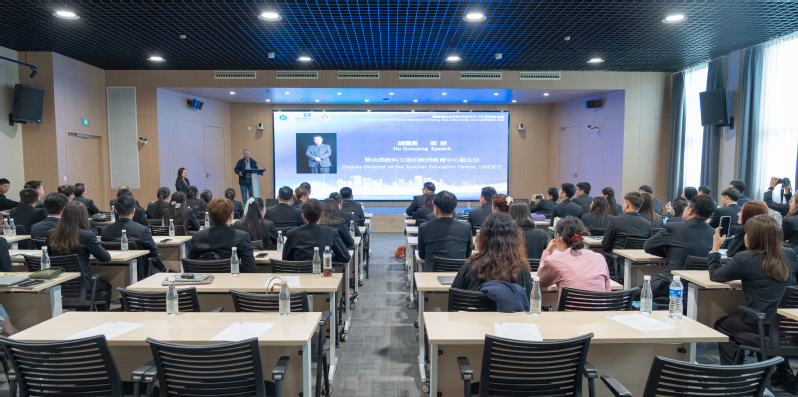
On the morning of April 23, the delegation, led by Director Suban Pornwiang, visited TEC. Professor Hu Guoyong, Deputy Director of TEC, delivered a speech. He first extended a warm welcome to the visiting faculty and students from Chiang Mai University, noting that the UNESCO Teacher Education Centre is an important global platform for teacher development and is willing to share excellent experiences in teacher education with the world. He expressed hope that the two sides would take this visit and exchange as an opportunity to conduct in-depth discussions on common issues in China-Thailand educational development and promote cooperation in teacher education, graduate training, and academic research. Associate Professor Zhu Xiaohu of TEC introduced the Centre’s development history, mission, vision, and current key projects, and expressed expectation for in-depth cooperation with Thailand in teacher development in the future.
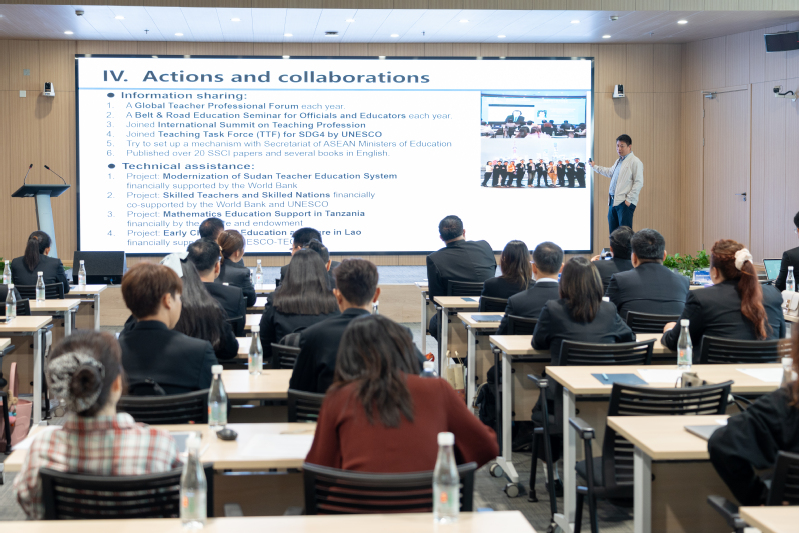
Subsequently, Associate Professor Zhu Xiaohu gave a lecture titled Basic Education in China from a PISA Perspective to the visiting faculty and students. Using PISA data, he demonstrated the strengths of education in Shanghai and China in terms of quality, equity, and disciplinary climate, analyzed issues such as students’ academic burden and learning strategies, and shared experiences in educational development from multiple perspectives including cultural traditions, teacher training, teacher policies, curriculum reform, and educational investment.
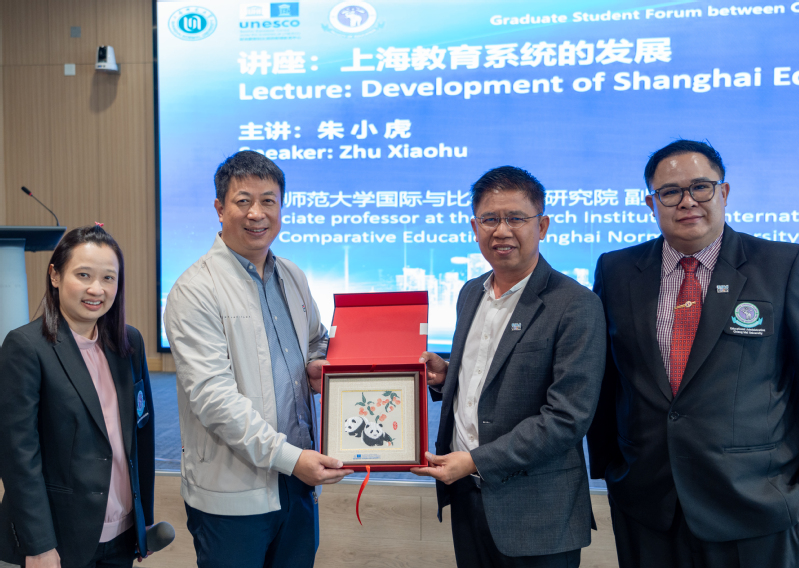
Professor Suban Pornwiang, Head of the Educational Administration Program at the Faculty of Education, Chiang Mai University, expressed gratitude to TEC in his speech. He hoped that the two sides would conduct in-depth cooperation in teacher professional development, curriculum reform, and educational informatization in the future, introducing China’s successful experiences to Thailand to promote educational development.
After the reports, graduate students from TEC and Chiang Mai University held academic exchanges on Educational Administration and International Comparison. Feng Yuan (master’s student at TEC), Albert Kissima (PhD student at TEC), and Wu Mengying (master’s student at TEC) shared topics including a comparison of Sino-Korean assessment frameworks for international understanding literacy, Sino-Tanzanian variation teaching in mathematics, and STEM teacher training in the UK. Tanita Odthon, Nattawut Ngammoo, and Chalermpon Samitomon (master’s students from Chiang Mai University) focused on the practice of regional alternative education in Chiang Mai, analyzing how community collaboration supports disadvantaged students such as those from poor families or with disabilities. Supathida Thamsutiwat, Chamaiporn Jaisooksearn, and Yanakawee Khatsitalee (PhD students from Chiang Mai University) proposed guidelines for educational leadership in sustainable development, emphasizing the moral and strategic roles of educational administrators in cross-cultural governance. Phanwisa Chinpanchasap, Thanakan Arunsak, and Thanatorn Intrarasarn (master’s students from Chiang Mai University) put forward a six-step framework for teaching supervision based on the concept of schools as learning communities.
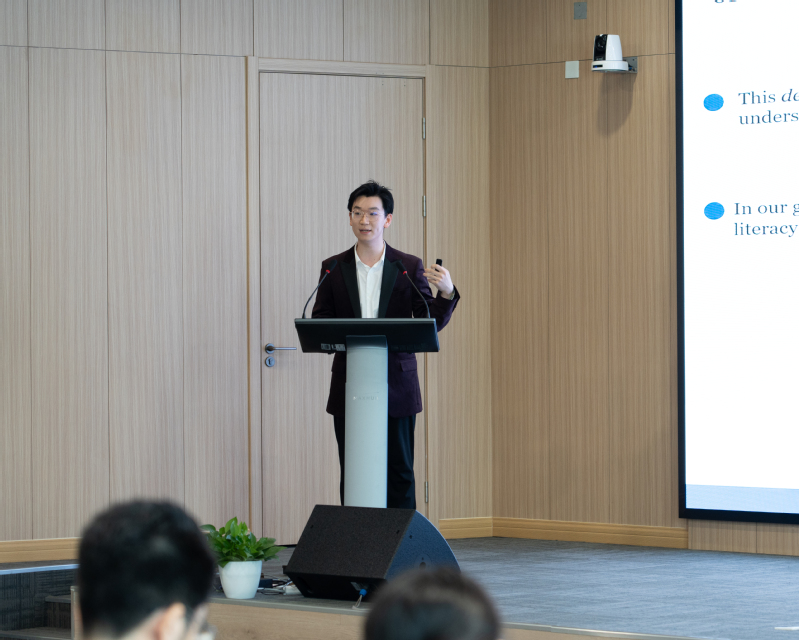
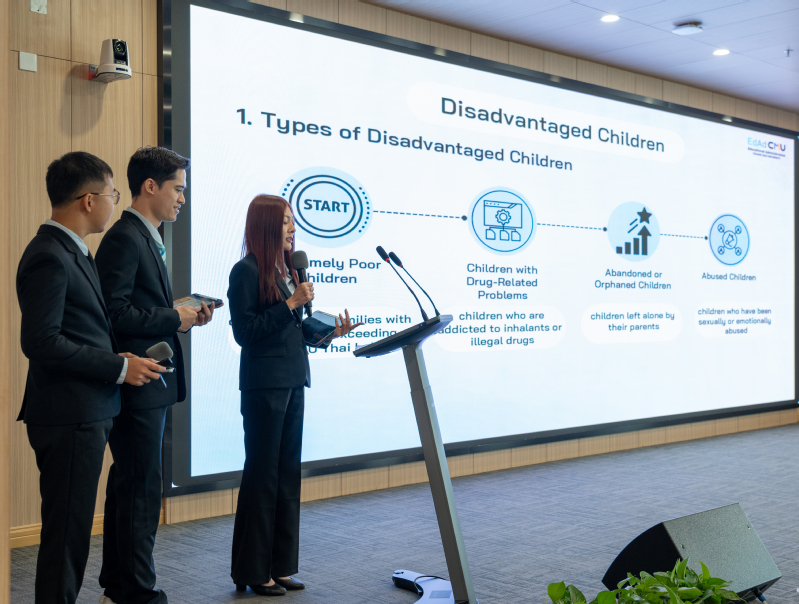
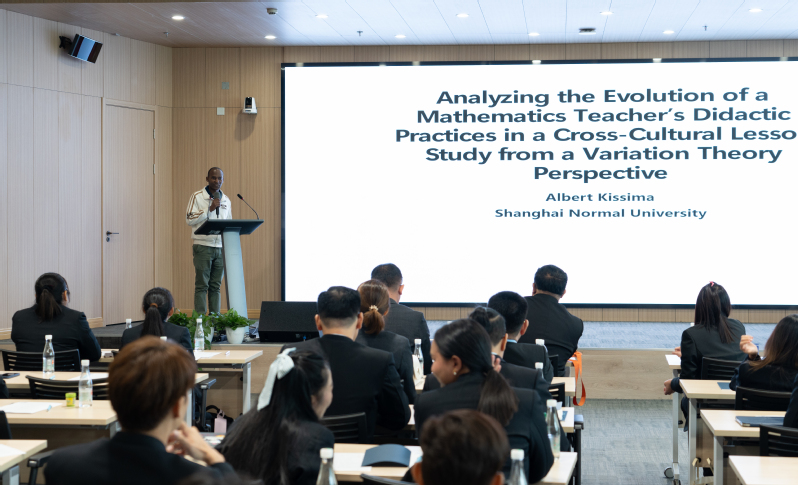
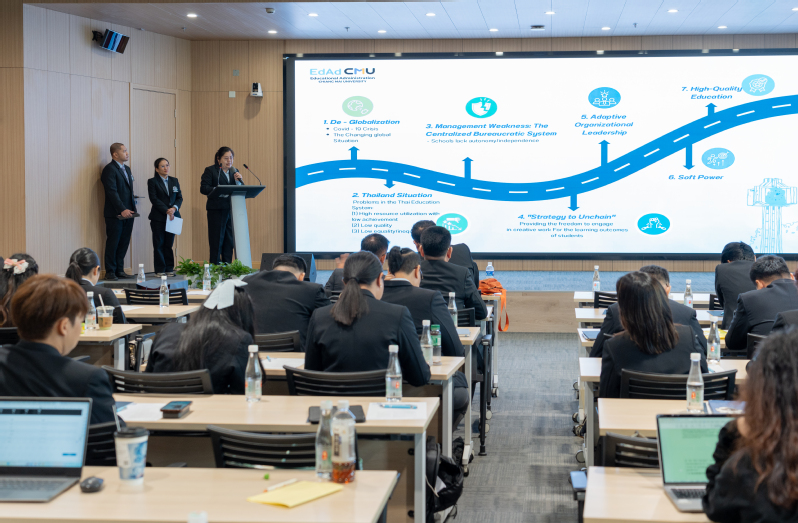
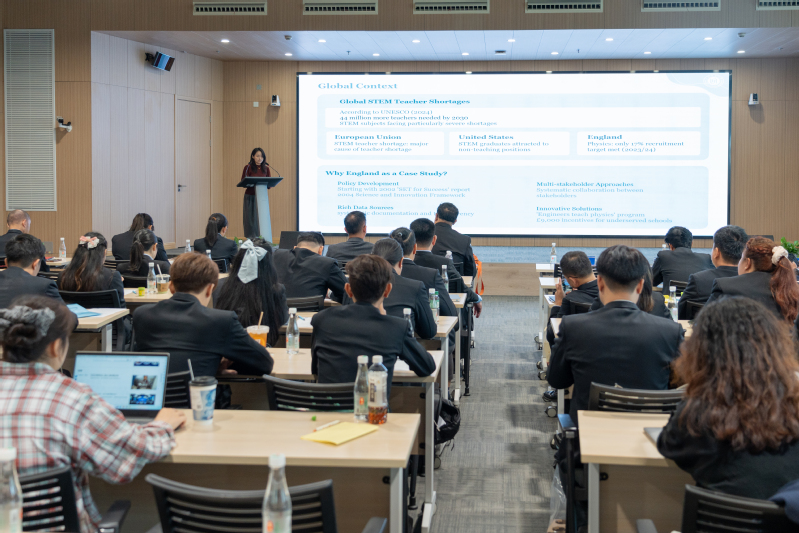
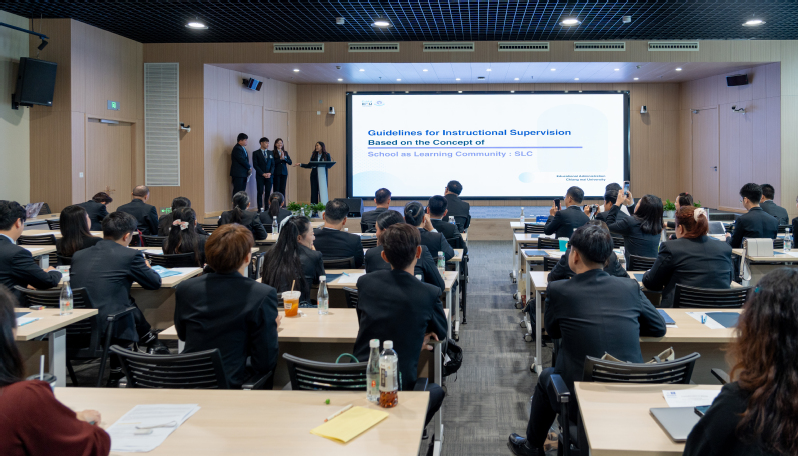
After the forum, scholars from both sides agreed that this exchange not only sparked academic insights but also laid the foundation for building a long-term cooperation platform. The two sides will further promote projects such as joint research by Chinese and Thai students, faculty and student exchanges, and curriculum co-construction in the future.
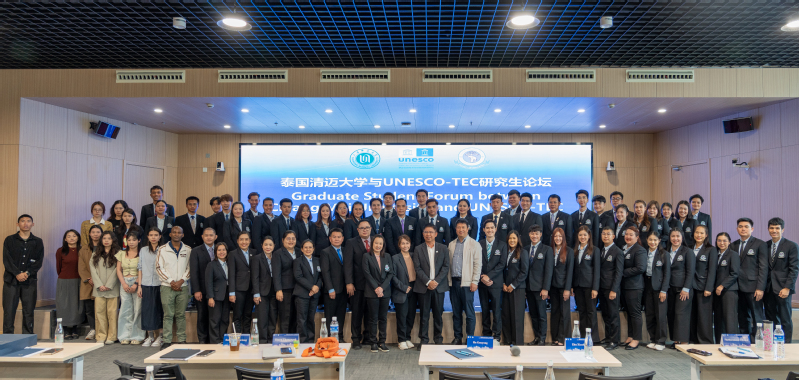
On the morning of April 24, TEC organized an exchange activity between the Department of Educational Administration, Faculty of Education, Chiang Mai University, Thailand, and the Department of Educational Administration, College of Education, Shanghai Normal University (SHNU). First, Professor Chen Shaofeng and Associate Professor Zhang Jilong from the Department of Educational Administration at SHNU, along with Associate Professor Suban Pornwiang, Associate Professor Tharn Thongngok, Dr. Phattharamanat Sritrakul, and graduate students from the Thai side, conducted in-depth exchanges and mutual learning on student training, curriculum design, and characteristics of principal professional development in their respective educational administration programs. The meeting also specially invited Zhu Yiliang, Principal of Shanghai Luojing Middle School, and Mao Zhifeng, Principal of Shanghai Baoshan District Leye Primary School, to introduce their personal career development paths to the Thai faculty and students and participate in discussions, enabling attendees to gain a deeper practical understanding of the unique features of principal career development in China.
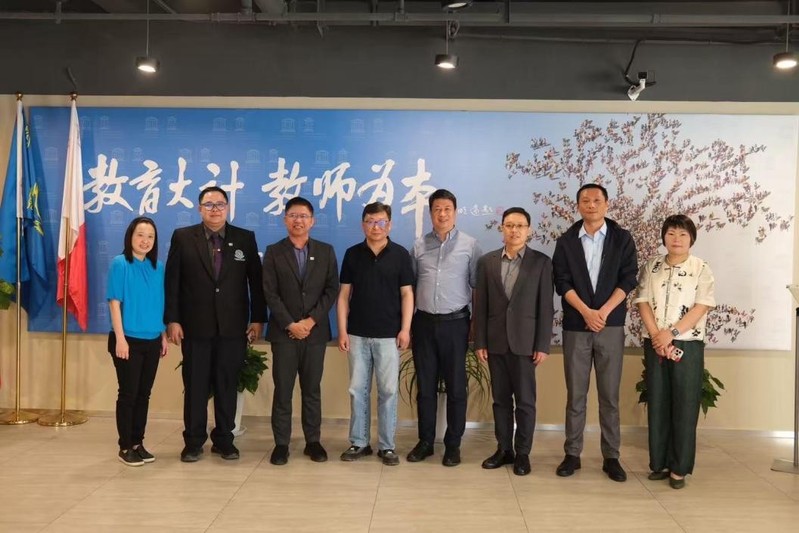
In the afternoon, the delegation visited Shanghai Yuannan Middle School. Mao Ying, Party Secretary and Principal of the school, showed the delegation around the campus. The delegation experienced specialized club activities such as calligraphy, tie-dyeing, and cotton spinning, and enjoyed students’ dragon dance and chorus performances. Student volunteer guides introduced the school history museum, Huang Daopo Exhibition Hall, and the school’s characteristic activities to the guests in fluent English.
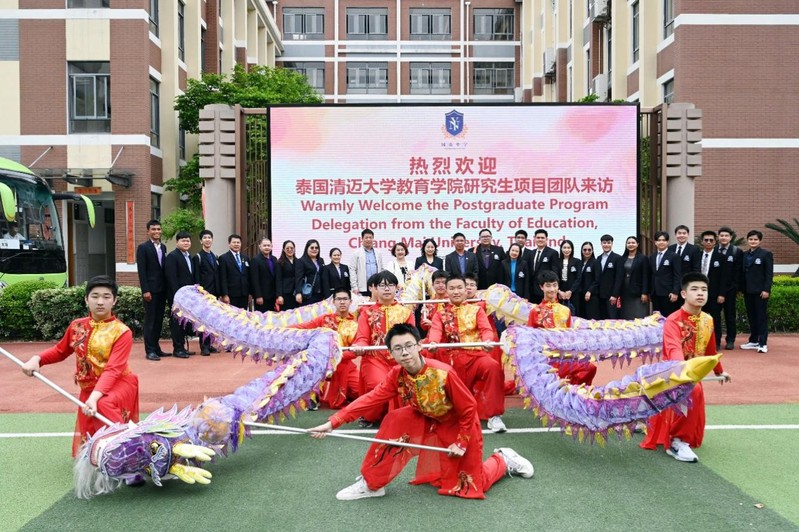
After the visit, Principal Mao Ying shared and exchanged views on the school’s operation with the attending guests. She introduced the school’s main characteristics and achievements, focusing on the setup of comprehensive practical activity courses, cases of interdisciplinary thematic learning, and the structure of the One Core, Four Dimensions curriculum cluster. After the meeting, Principal Mao presented the guests with the book Creation, which elaborates on her practices in curriculum innovation and educational reform.
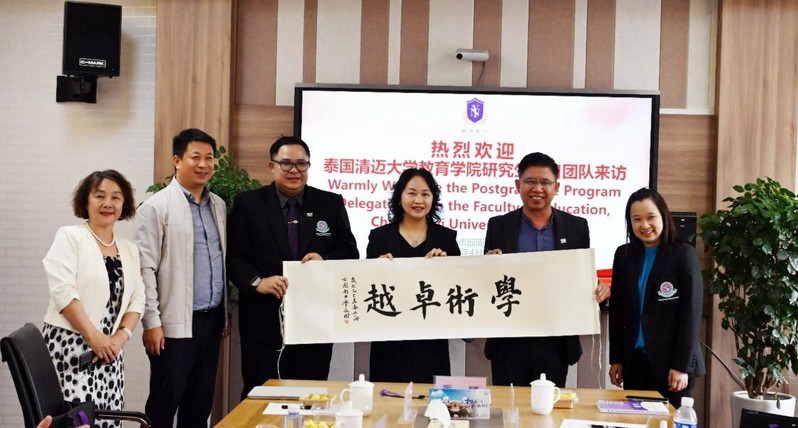
Later, the delegation’s faculty and students entered classrooms to observe junior high school English and mathematics classes, gaining a first-hand experience of teaching practices in Chinese schools. The delegation was deeply impressed by the school’s distinctive features, positive learning atmosphere, and excellent hardware facilities.




